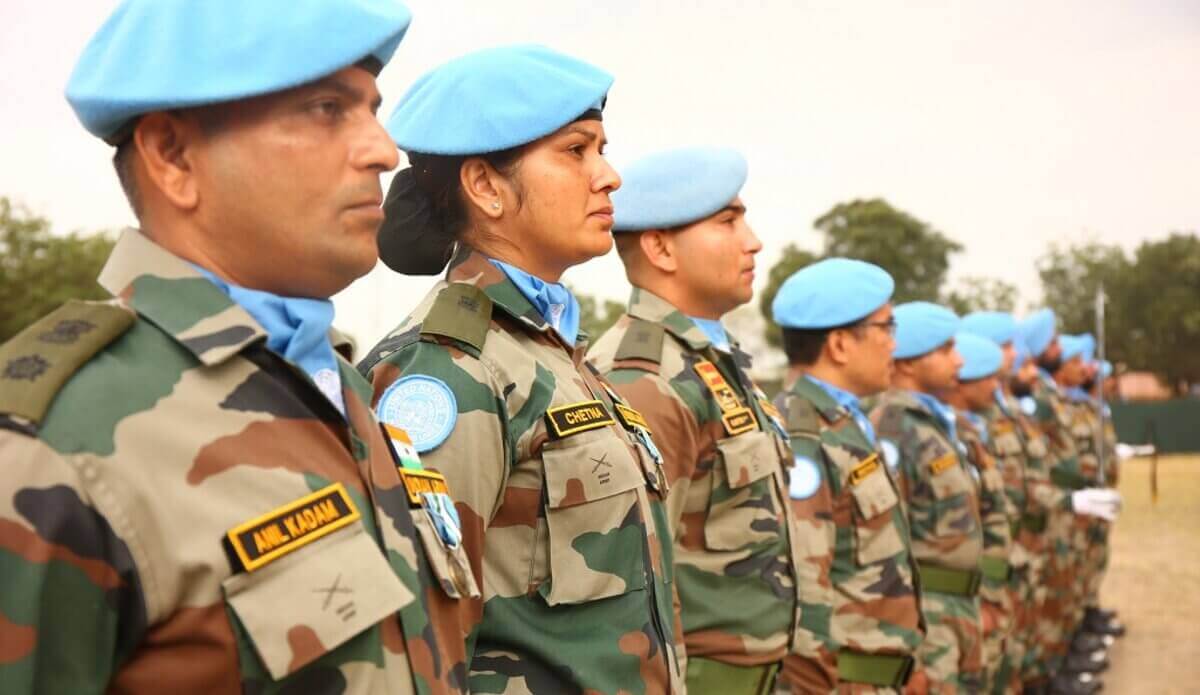India’s Permanent Representative to the UN, Ruchira Kamboj, on Tuesday told the General Assembly that the world body needs to adapt to the changing security scenario of peacekeeping missions, which has become “more complex, more violent, [and] riskier.”
“India is at the forefront of UN Peacekeeping…”
— India at UN, NY (@IndiaUNNewYork) February 22, 2023
Statement by PR at the opening of the 2023 session of the Special Committee on Peacekeeping Operations today. pic.twitter.com/DuKLejjff8
Kamboj warned that terrorist and armed groups have “near conventional capabilities” and “view civilians and peacekeepers alike as fair targets.” She said it was no surprise that fatalities among peacekeepers have been rising steadily in recent times.
India’s Suggestions
Against this bleak backdrop, Kamboj outlined nine measures to improve the safety of peacekeepers globally.
First, she called on the UN to make “clear and realistic” mission mandates and urged for more consultations on missions to make mandates more robust. Second, she emphasised that peacekeepers should have an effective strategy to communicate with local stakeholders to prevent misinformation.
Next, Kamboj stressed the need to build trust between mission leadership and the host state. The Indian envoy also called on the Security Council to strictly implement resolution 2589, which seeks greater accountability for crimes against peacekeepers.
She further encouraged the UN to undertake capacity-building efforts in host states to strengthen their security sector and rule of law institutions so that states can better protect civilians and ensure peace. Kamboj also urged peacekeeping states to contribute more in material support and, in this regard, noted that India is deploying a helicopter unit to the UN Mission in Mali (MINUSMA) by May to assist the Blue Helmets.
She added that UN members should send more women peacekeeper units to conflict-affected areas, and exit strategies should be developed in mission planning during the inception itself. “India believes that UN missions should not exist in perpetuity,” she noted.
Finally, Kamboj stressed that missions should adopt environment-friendly approaches and use renewable energy.
Peacekeepers’ Death in Mali
Kamboj made the statement as three Senegalese peacekeepers, who were part of MINUSMA, were killed in Mali after an attack by an insurgent group. She offered India’s “deepest condolences for the Senegalese Peacekeepers who made the supreme sacrifice in MINUSMA.”
Five other peacekeepers were injured in the attack, wherein a MINUSMA supply convoy was ambushed in the village of Songobia in central Mali while heading back to its base in Sévaré.
India’s Role in Peacekeeping Efforts
According to UN data, India is the second-largest troop contributor to UN peacekeeping missions globally, with almost 5,900 troops deployed. Bangladesh sends the largest number of troops to UN missions.
The Indian mission at the UN notes that India has a “proud history” of peacekeeping dating back to the 1950s, and has contributed over 250,000 troops, the largest number from any country. Indian peacekeepers have also participated in more than 49 missions in conflict zones, including Somalia, Ethiopia, Gaza, the Golan Heights, Congo, and Liberia.
Additionally, 175 Indian peacekeepers have died while serving.
India recently sent its largest all-women peacekeeping contingent to Abyei, near the Sudan-South Sudan border.

